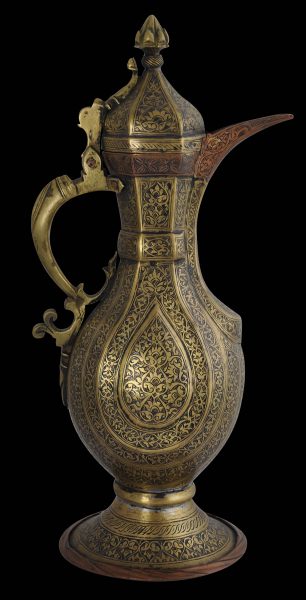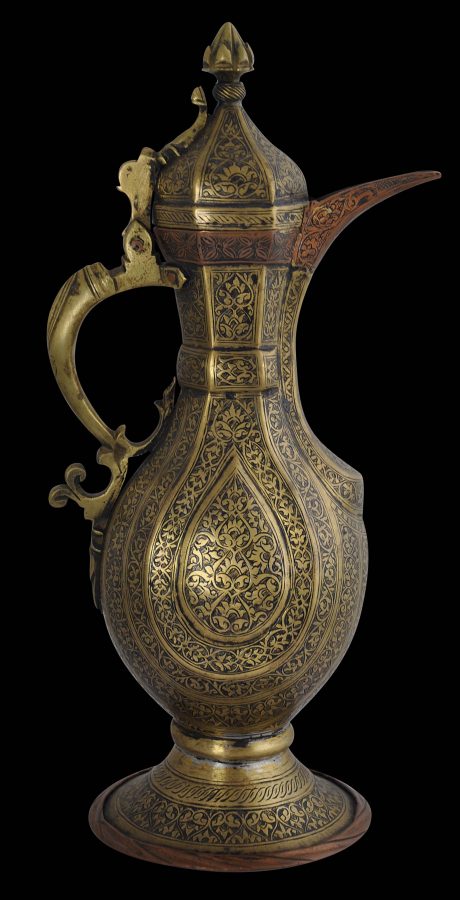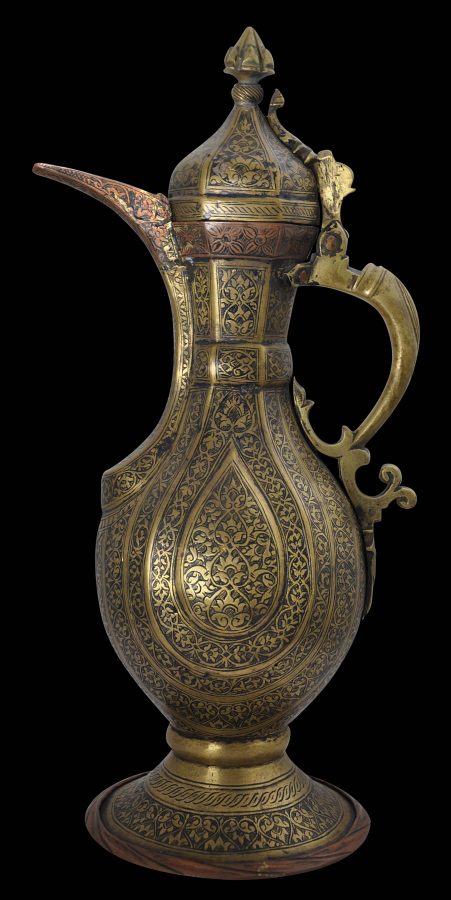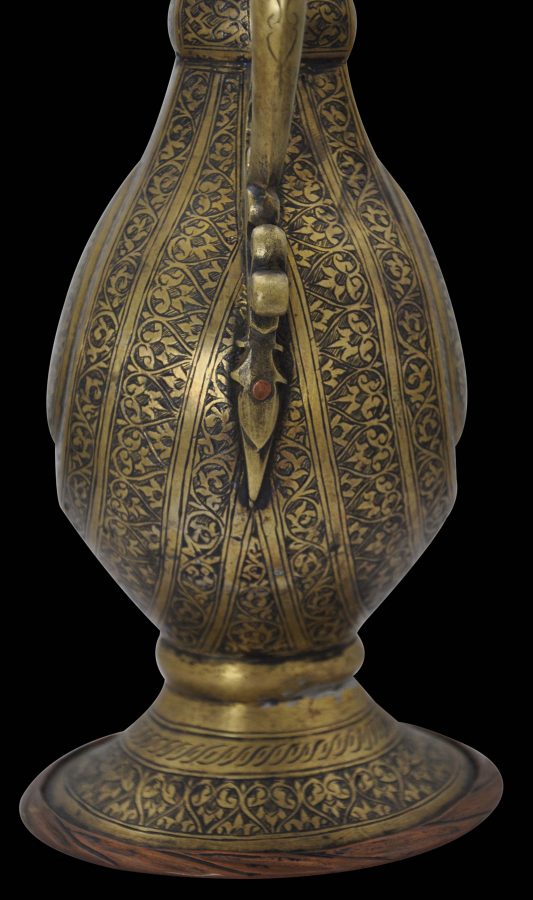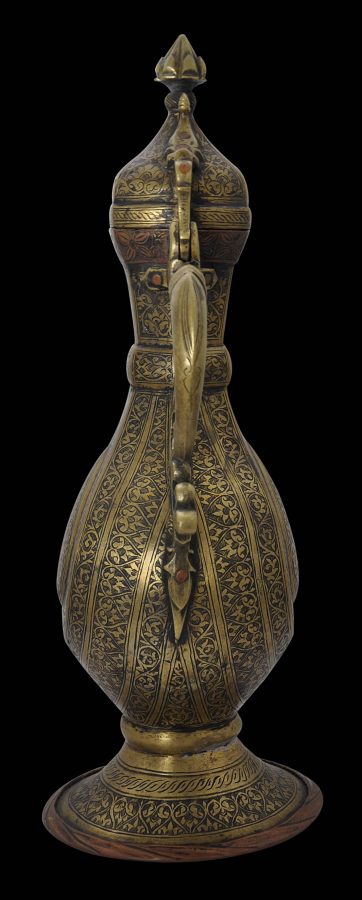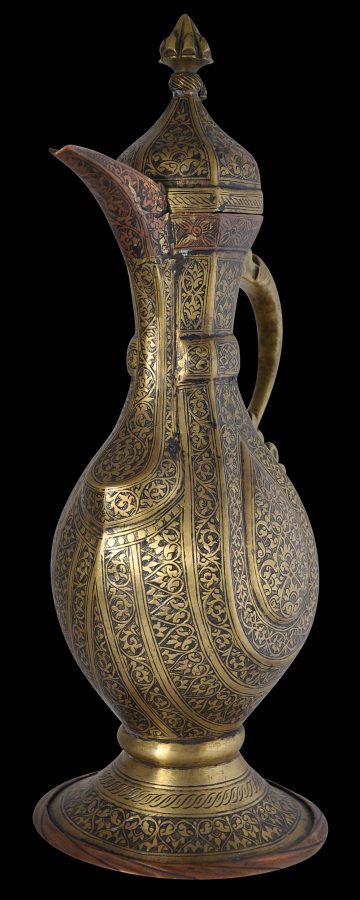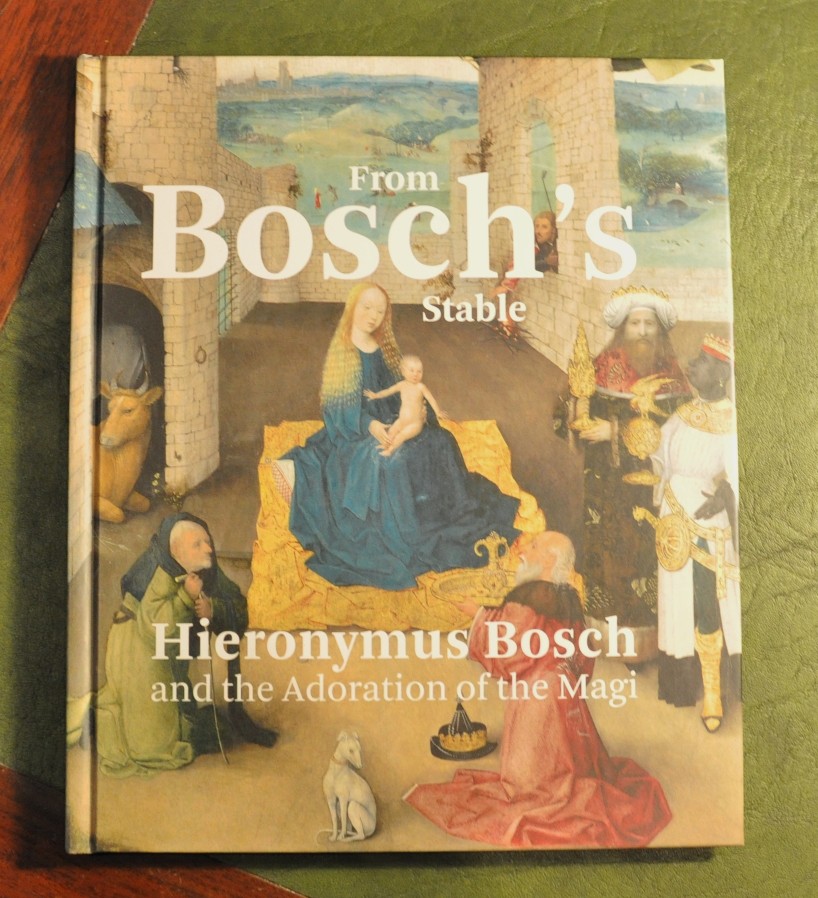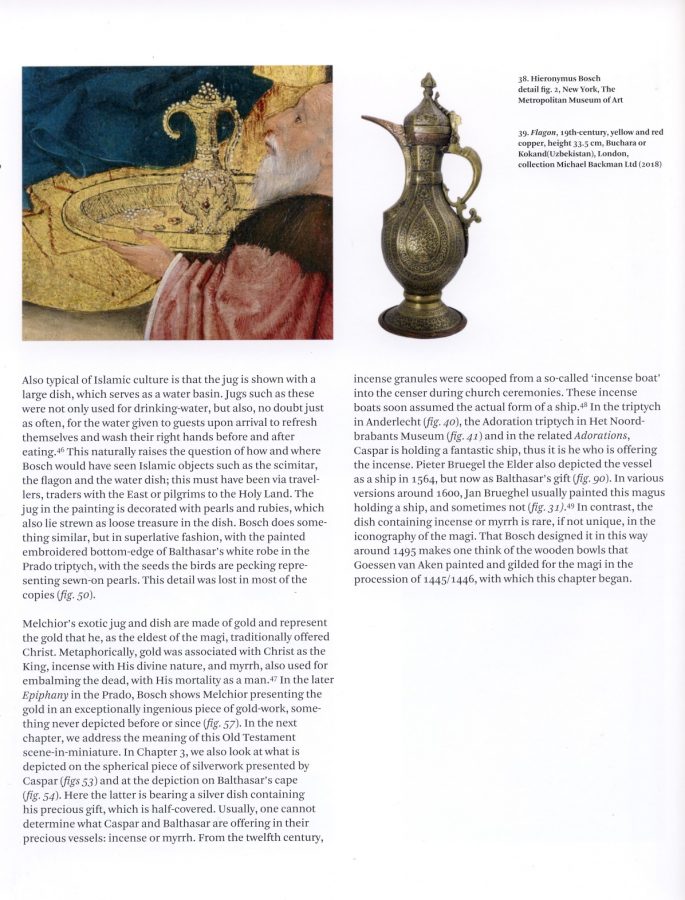This impressive, well sculptured ewer was made to serve tea rather than coffee in the region of Bukhara or Kokand in Central Asia. It is of brass with copper detailing, providing a pleasing contrast between the two metals.
The body is engraved with bands of interlocking scrolling flower and leaf motifs. There is a central raised tear-drop cartouche engraved with flowers and tendrils that is reminiscent of traditional Timurid designs. The lid is high with six sides that rise to a lotus bid finial.
The flared foot is also engraved; the edge is wrapped in copper.
The handle departs from the classic ‘S’ shape, with cast scrolls and flourishes, and appears to be based on a stylised makara with jaws gaping; the bottom jaw being attached to the neck of the tea pot and the upper jaw attaching to the lid. The rivets used to attach the handle to the flange of the lid appear as eyes for the makara.
The teapot is in excellent condition.
Note: This item was exhibited in ‘Hieronymus Bosch and the Adoration of the Magi’ at the Noordbrabants Museum, Netherlands, December 2018 to March 2019.
This ewer item is illustrated in the catalogue associated with the exhibition: Ilsink, Koldweij, & Spronk (2018) – page 30. See the final images below.
References
Ilsink, M., J. Koldweij, & R. Spronk, From Bosch’s Stable: Hieronymus Bosch and the Adoration of the Magi, Het Noordbrabants Museum, 2018.
Kalter, J. and Pavaloi, M., Uzbekistan: Heirs to the Silk Road, Thames & Hudson, 1997.


